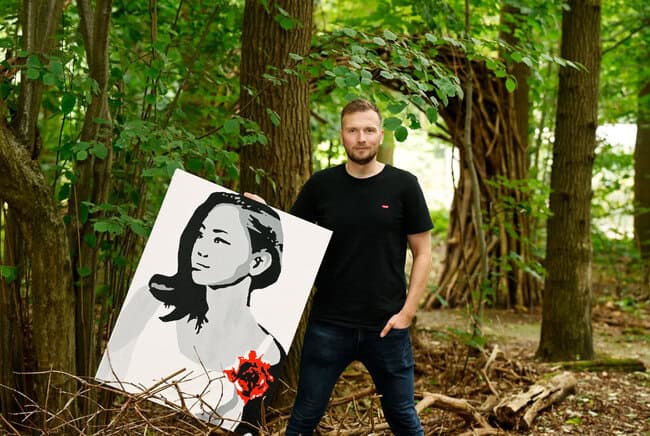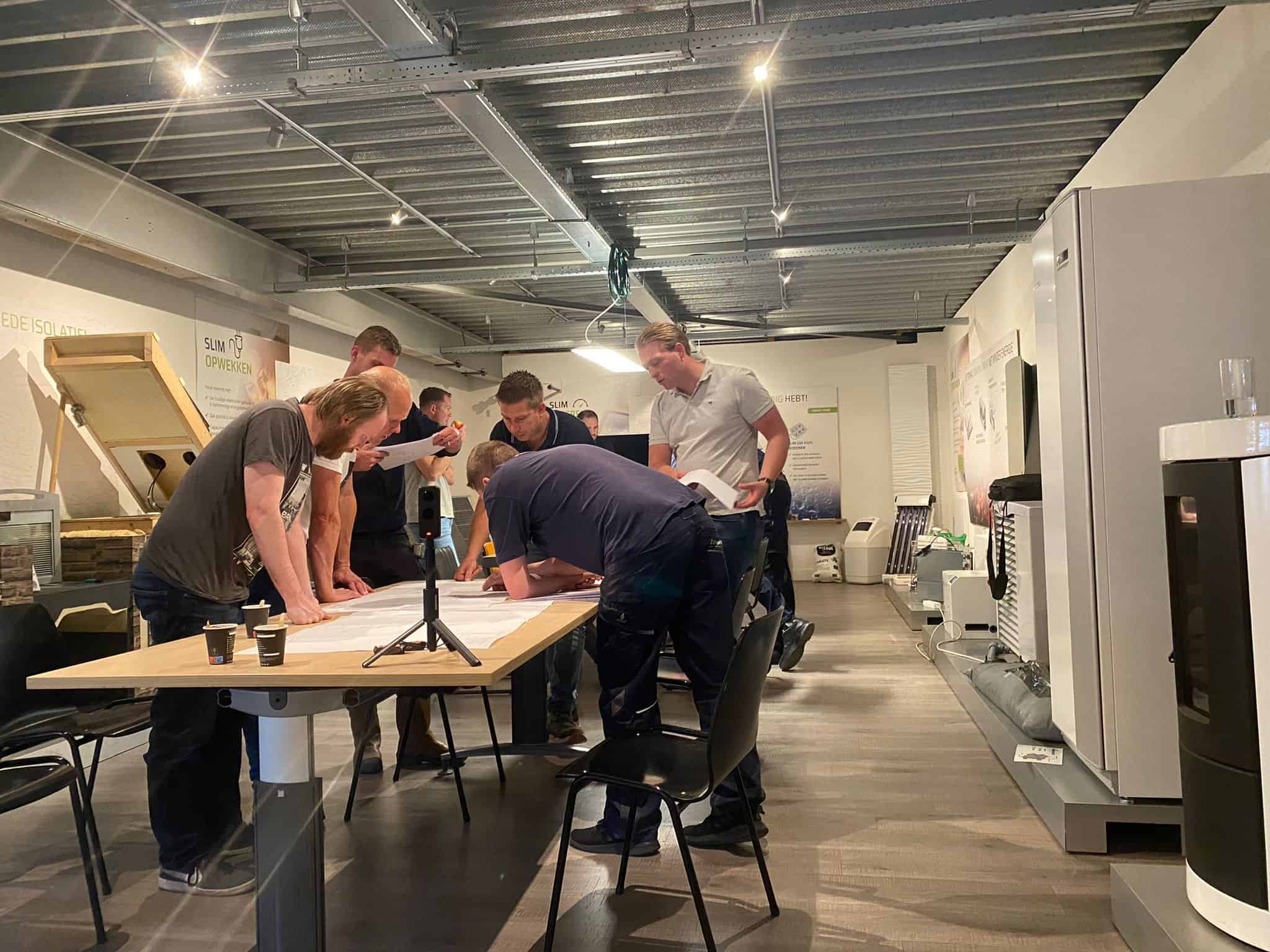
“Can everyone hear me?” It must be pretty much the most spoken sentence over the past few weeks.This sentence resounded through the digital ether even during the online hackathon run by Dutch Hacking Health, which was unable to go ahead in physical terms due to the corona virus. Although there could not be a physical hackathon, over 500 participants gathered together online to ‘hack’ the corona virus this March and April.
Normally the Dutch Hacking Health hackathons take place across various cities with a national final later in the year. As a result of the virus, these events have been postponed until later on this year. “But doing nothing wasn’t an option,” Concha van Rijssel from Dutch Hacking Health tells the participants via a digital connection. “Right now, initiatives are needed to tackle this crisis. This is what Dutch Hacking Health is all about.”

Designers, healthcare professionals, developers, patients and entrepreneurs work together during the Dutch Hacking Health hackathons on finding solutions for healthcare. The goal is to further develop and implement these solutions in care services.
Mark Slager from the organisation of the online hackathon explains over the phone that this edition is not any different. “It is about multidisciplinary teams working together so that they can learn from each other’s expertise. The only difference is that we don’t spend an entire weekend together, but do everything online instead. When we decided to deal with issues related to the corona virus, it instantly caught on like wild fire. It’s really wonderful to see so many people wanting to contribute.”
Do not reinvent the wheel
According to Slager, the digital work environment where participants can drop ideas, share files and use other tools was not yet finished when participants already wanted to get started. “Almost immediately, the online bulletin board was filled with all kinds of plans submitted by students, healthcare providers and companies. Initiatives to connect former healthcare workers to hospitals, people who want to make face masks. You name it. This online bulletin board allows participants to join in on an idea that’s going around. Of course, it’s a shame if participants start reinventing the wheel or doubling up.”
Slager has already seen several ideas pass by which he thinks are needed in the fight against the virus. “Very basic things like one central information platform for caregivers. Now you see that a lot of information is spread all over the place. Whereas I think it is important for healthcare providers to have a central point where information stems from. I also see a lot of potential in ideas that want to make use of data; or to predict the course of the disease. Or support the GGD (the Dutch Public Health Service) in contact tracing. However, social innovation will also play a role. Take hoarding as an example, which causes a lot of problems when it’s not really necessary. Another team is also working on this.”
First time DHH hackathon is held online
As this is the first time that the hackathon will be held online, it will take some getting used to for the organisation. “There are also participants who are not as handy digitally as the rest. For them, we have extra support and manuals so that they can get to grips with the tools too. Every team is assigned a coach and they can also ask their questions to other teams or participating companies within the online work environment. Although we are not physically together, we try to stimulate contact and networking. Doing things online also has its advantages on the sly, because it removes certain barriers. There are fewer differences between people. Someone who knows less about certain subjects may find it easier to talk to an expert online rather than in real life.”

Not just about technical solutions
The jury is made up of Erik Gerritsen, Secretary General of the Dutch Ministry of Health and Sport, Carola Verschoor, founder and Chief Creative at Transformational Studio and Ramses de Groot from Economic Board Utrecht. De Groot is domain manager Human Capital Agenda and deals with the correlation between education and the labor market. De Groot also watched the digital kick-off with a sense of admiration on Friday morning. “It’s impressive to see that so many people are so enthusiastic about tackling different themes and working together with others from a variety of sectors, professions or areas of expertise.”
According to De Groot, events like hackathons are great tools for finding solutions together in an ever-changing labor market. “The traditional employment model, whereby you are trained for one profession, is disappearing. Job roles are blurring and becoming more fluid. This means that people need other competencies and skills. This applies to students, but also to employees who are undergoing retraining, for example. That’s why we think it’s important that different types of people work together towards one goal. We also do this at the Utrecht Challenge Alliance, where interdisciplinary teams collaborate on social themes for the Utrecht region. This way of working leads to accelerated innovation and to start-ups getting off the ground.”
Attention also on future outbreaks
De Groot attaches particular importance to the fact that, as a member of the jury, he not only looks at technical solutions, but also at a human approach. “There is now – understandably – a lot of attention for preventing the virus or fighting it. Yet the coronavirus is also having an enormous impact from a societal and social point of view. For instance, how do you deal with the experiences of people in lockdown? We are also looking at long-term solutions, e.g., how can the RIVM (the Dutch National Institute for Public Health and the Environment) map out the spread of a disease more effectively in the event of a subsequent outbreak?
The winners and their prizes will be announced on Tuesday at the end of the day. They will then get to compete in the national finals at the end of the year, along with the winners of the physical hackathons (which have been rescheduled for autumn). Teams that do not win any prizes, but still want to carry on working on their ideas, can ask Dutch Hacking Health for help.








